Game of Thrones is alienating large swathes of the show's fan base
The Battle of Winterfell was a literal battle between darkness and light

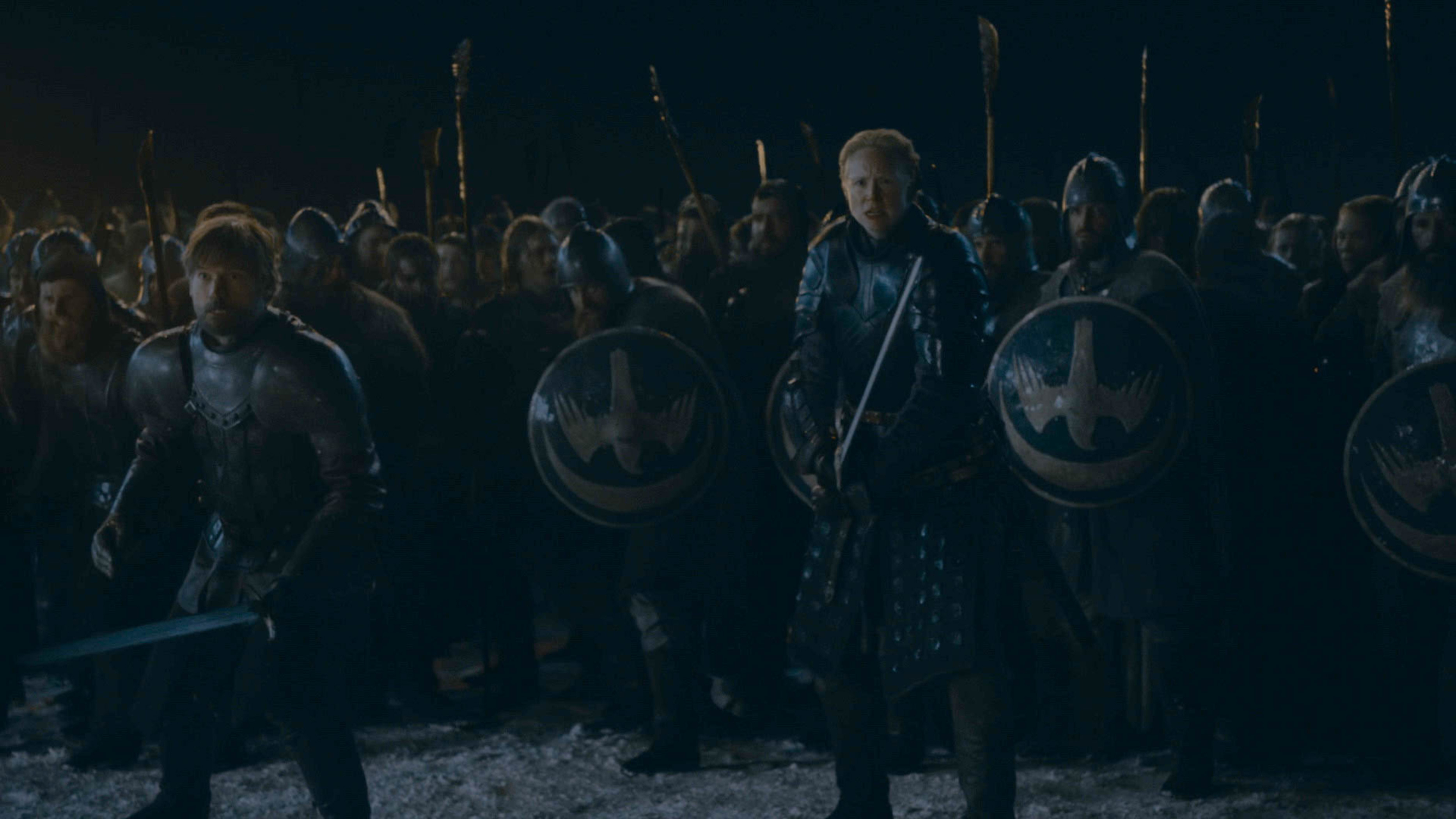
A free daily email with the biggest news stories of the day – and the best features from TheWeek.com
You are now subscribed
Your newsletter sign-up was successful
If there was one resounding takeaway from the epic Battle of Winterfell on Sunday's episode of Game of Thrones, it wasn't Jorah's sacrifice for Daenerys, Lyanna Mormont being crushed to death by a giant, or Arya's in-the-nick-of-time defeat of the Night King. It was that the entire episode was too dang dark.
For several seasons now, inky rooms and pitch-black night scenes have left Thrones audiences squinting at television screens and turning up the brightness on computer monitors just to try to make out what the heck is going on. But in a high-stakes, action-packed episode like "The Long Night," shot over 55 nights in Northern Ireland, it was especially important to have a perfectly calibrated screen and black-out curtains, or risk losing two-thirds of the cinematographic minutiae. Under ideal conditions, the episode was beautifully — often even breathtakingly — lit. But the episode's lighting problems also illustrated the utter disregard the showrunners have for the medium in which they're working.
To understand why Game of Thrones looks so terrible on your television, you need to know a bit about how TVs create the color black in the first place. Traditional LED TVs use a backlight in order to illuminate the screen; to make black, the TV attempts to block as much of that backlight as possible. Newer and higher-end OLED TVs, on the other hand, are able to display what is known as "true black," which involves actually turning off the LEDs for specific pixels so that there is complete darkness. The latter effect creates a much finer spectrum between dark and light, like you would see in a movie theater, but OLED TVs are still relatively rare (and prohibitively expensive) for average households.
The Week
Escape your echo chamber. Get the facts behind the news, plus analysis from multiple perspectives.

Sign up for The Week's Free Newsletters
From our morning news briefing to a weekly Good News Newsletter, get the best of The Week delivered directly to your inbox.
From our morning news briefing to a weekly Good News Newsletter, get the best of The Week delivered directly to your inbox.
The Game of Thrones showrunners undoubtedly know this. They also undoubtedly know that many fans — myself included — stream the show's newest episodes, rather than watch them via cable. That means millions of people saw a compressed version of "The Long Night," further limiting the range of black colors. Video streaming is no longer a niche activity, and in choosing the palette for Sunday's episode, the people behind Game of Thrones knew much of the audience would be severely limited in what they could actually see. Why ignore this fact?
The rise of prestige TV over the past decade has made for silly arguments like: Is such-and-such a TV show or is it actually a movie? Showrunners David Benioff and D.B. Weiss have made their personal opinions abundantly clear, calling Game of Thrones "a 73-hour movie." This is irritating for a number of reasons, not the least of which is that it puts some sort of artistic superiority on the designation of a "movie" when television can be just as cinematographically and narratively invigorating. Still, there is no debate about the medium itself: Thrones airs in weekly installments on HBO and is watched exclusively on televisions, laptop screens, or mobile devices. Further, the medium still informs the writers and directors to some degree; episodes have self-contained story arcs and cliffhangers. Yet, the cinematography itself (and perhaps the runtimes) proves that Benioff and Weiss are no longer invested in the TV medium.
This is evident in the fact that, under the most ideal conditions, the Battle of Winterfell looked superb. I use a professionally calibrated plasma TV that displays true blacks the way they would appear in a theater, and was able to (mostly) watch the episode the way the creators had likely intended. I was repeatedly blown away by just how gorgeously lit this episode was, with director Miguel Sapochnik obviously having put huge amounts of time and attention into the way the light fell, from the ominous, vanishing Dothraki arakhs to the dragons silhouetted in the moonlight to even the way firelight leaked through the Night King's fingernails:
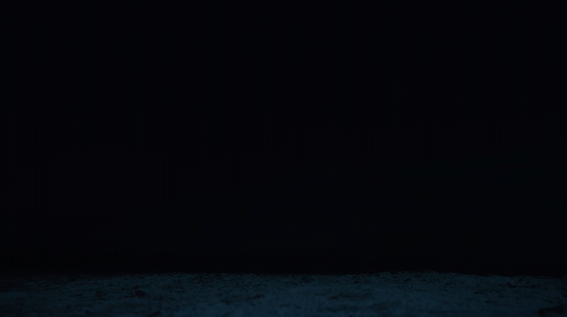
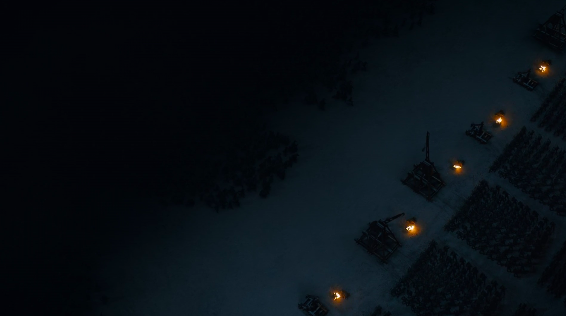
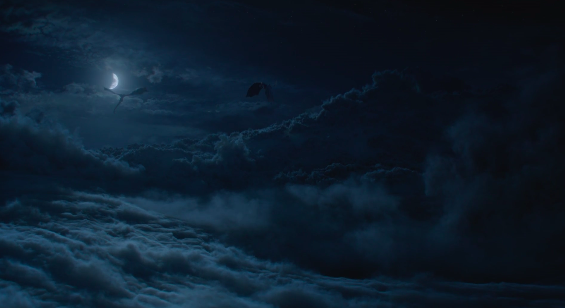
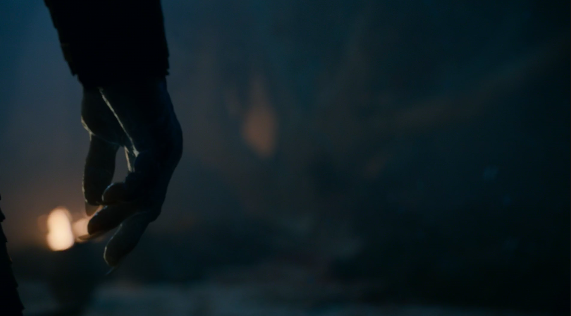
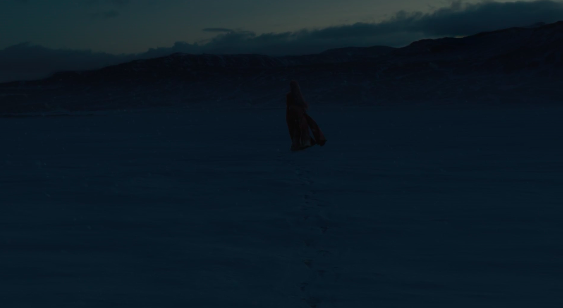
Unfortunately, only a small percentage of the audience got to experience the show this way. Most were left pointlessly struggling to make out what was going on. Sapochnik's lighting was self-defeating, frustrating more people than it likely impressed. If he was shooting a movie, which would be shown in the perfect setting of a theater, this wouldn't be the case — but he isn't.
A free daily email with the biggest news stories of the day – and the best features from TheWeek.com
Making the episode better suited for television wouldn't have been particularly hard. Choices as simple as how the lighting was used or how the episode was edited could have made it more bearable for everyone watching at home. Still, the showrunners and Sapochnik seemed to have their minds made up about the superiority of grand, gloomy cinematic techniques over those better suited for the small screen.
One might generously argue that Benioff and Weiss are looking ahead to the future legacy of Game of Thrones, shooting the Battle of Winterfell with the hope that TVs will continue to improve and OLED displays will become more affordable for the average consumer. While that may be true, they are still alienating large swathes of the fan base watching the show as it airs. In doing so, rather than work with their medium, the creators battle against it.
Jeva Lange was the executive editor at TheWeek.com. She formerly served as The Week's deputy editor and culture critic. She is also a contributor to Screen Slate, and her writing has appeared in The New York Daily News, The Awl, Vice, and Gothamist, among other publications. Jeva lives in New York City. Follow her on Twitter.
